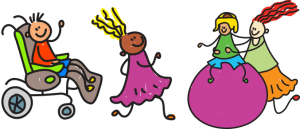Many parents feel frustrated and very anxious about making the right treatment choices for their children. I am therefore writing a blog series to share some information with you on some of the treatment approaches I use within my private practice.
What treatment approaches are available to help my child with Cerebral Palsy improve their motor function?
This list below shows some of the treatment approaches available to your child. Your physiotherapist will work alongside the wider healthcare team of doctors and therapists. They will help you decide which treatment approaches may be suitable for your child.
This is not an exclusive list of treatments.
Physiotherapy Specific Interventions:
- Neurodevelopmental Treatment
- Goal directed strength / functional training (GDT)
- Active and passive sustained stretching
- Aquatic Therapy
- Early Intervention (EI) and Home Exercise Programme (HEP) – These are not specific treatment techniques though an essential approach.
- Mobility devices and equipment (specialised seating and standing frames)
Therapy and Medical Treatment interventions:
The interventions below are often carried out with a team of healthcare professionals such as physiotherapists, orthotists, orthopaedic consultants, occupational therapists, neurologists and paediatric consultants.
- Optimal Segmental Kinematic Alignment Approach to Rehabilitation (OSKAR) – Orthotics / Leg splints
- Lycra
- Serial casting
- Constraint-Induced Movement Therapy (CIMT)
- Single Event Multilevel Surgery (SEMLS)
- Botulinum Toxin Injections and or tone modulation medication
- Neurosurgical (Selective Dorsal Rhizotomy / Deep Brain Stimulation / Intrathecal Baclofen Therapy)
I have not discussed Complementary and alternative therapies for cerebral palsy in this series of blogs.
I shall start this blog series with a brief overview of Neurodevelopmental Treatments which I use in conjunction with other therapeutic interventions when treating children with Cerebral Palsy.
What is Neurodevelopmental Treatment (NDT)?
Neurodevelopmental Treatment is a hands on, problem solving approach that aims to improve your child’s overall development.
- The approach focuses on assessing the quality of your child’s movement.
- Your physiotherapist will identify the specific reasons that may be preventing your child from doing what they want to do.
- This approach incorporates developmental facilitation and strengthening techniques.
- Th aim is to engage your child through play functional and fun activities.
- It is important to ensure you and your child can clearly see progress through regular reviews of their goals.
- This approach is implemented with an intensive home programme.
- The NDT approach does not involve exclusively treat sensory‐motor problems.Your physiotherapist will including the emotional, social and functional problem too.
- Your physiotherapist will observe, analyse and interpret functional task performance as part of this treatment.
- It is important that the treatment is individualised and tailored to your child’s specific problems, aims and goals.
- A key elements is facilitation (using handling / sensory inputs to improve motor skills).
- It is important that your physiotherapist manages any compensatory motor behaviours.
Your physiotherapist will teach you and other family members how to implement the approach. It is important to carry out the home exercises little and often throughout the day.
Your physiotherapist will discuss how to do this through functional and play based activities. In essence they will teach your how to deliver this hands on approach with your child.
Top Tip
Write down all your questions about the different therapy approaches you are considering and discuss these with you physiotherapist and medical team. Some will not be suitable for your child and your team can explain why. Some will require a special assessment with a team that have expertise with that procedure / treatment.
Cerebral Palsy is the most common childhood movement disorder in the UK. There are lots of treatments options available for your child. And lots of ongoing research to investigate the benefits of these treatment options.
Contact us for an informal chat to ask any questions specific to your child. We have children’s physiotherapists who are specialists working with children with Cerebral Palsy within Surrey, Sussex, Kent, Hampshire and parts of London. https://wanderlusttherapyforkids.com/contact/


